Community / Economic Development
For Economic Stabilization Amidst Suburban Poverty: Maximize the Earned Income Tax Credit
The diffuse structure of suburbs makes it more efficient, according to this Brooking Institution post, to invest in individuals rather than places to fight poverty.
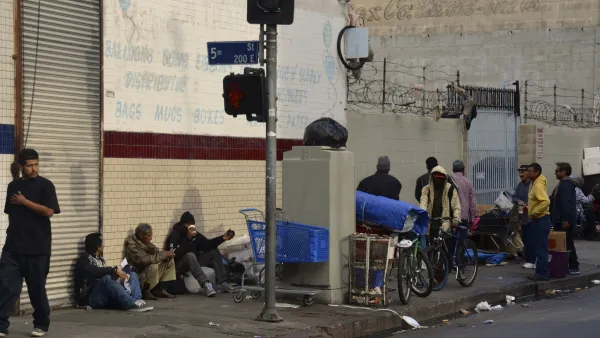
Los Angeles Declares Shelter Crisis Ahead of El Niño
Facing winter storms and flooding, the city of Los Angeles is opening public buildings as temporary shelters for the homeless. Mayor Garcetti also has the option of declaring a state of emergency around the 26,000 people without housing.
A Planner's Perspective on Brazil's Water Crisis
With water shortages in São Paulo making headlines around the world, Brazil is rethinking its approach to water infrastructure. Arup's Pablo Lazo gives his perspective on the various entities that are acting for change.

Walkability: Good Money After Bad
"We're investing in walkability," always sounds like an encouraging tagline from local governments...or does it?
'Threading the Needle' of Environmental Sustainability and Social Justice for Cities
This blog is part of the World Resources Report (WRR) series. The WRR looks at cities as drivers of economic and social opportunity, and simultaneously as areas with concentrations of poverty, environmental degradation, and inequality.
Anchorage to Provide Permanent Housing for the Homeless
Newly elected Mayor Ethan Berkowitz has unveiled a new plan to end homelessness in Alaska's largest city, Anchorage. It focuses on providing permanent housing over the next three years for 300 adults who are living on the street and in camps.
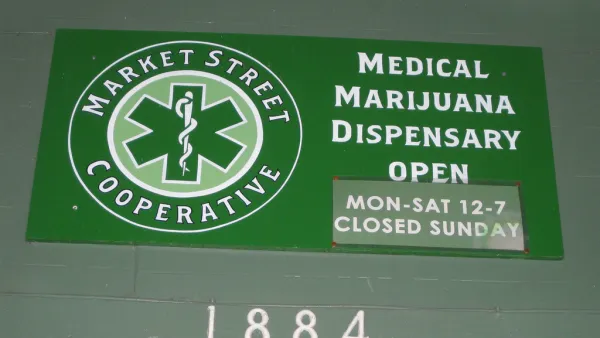
Anchorage Releases Draft Land Use Regs for Marijuana
Commercial marijuana operations to be restricted to industrial areas.
The Regulations Making Philadelphia a Beer Lover's Paradise
Cities and neighborhoods looking to locate and support breweries and brew pubs should look to Philadelphia as an example of a beer-friendly regulatory environment.
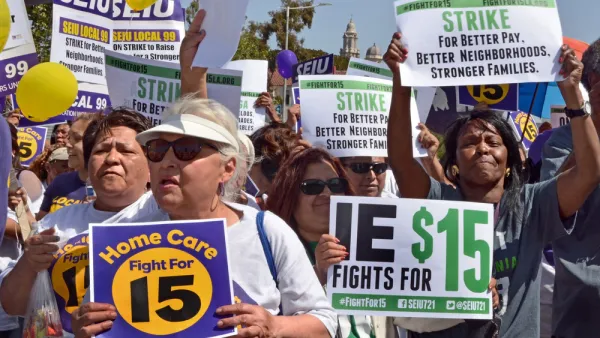
When Can Economic Advocacy Succeed in City Hall?
Marc Doussard of University of Illinois guest blogs on his new work in the Journal of Planning Education and Research, available with open access through Dec. 15, 2015.
Melting Pots and Shrinking Islands
Brooklyn-based artist Ekene Ijeoma newest piece shows what parts of New York City are affordable to different people across the spectrum of salaries in the form of crystalline islands called "wage islands."
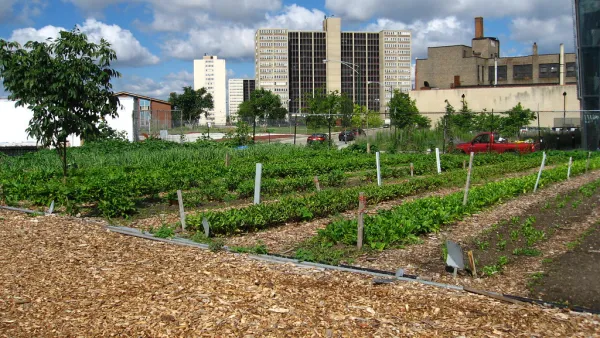
Guidebook: Lowering Barriers to Urban Farming
Urban agriculture has long been a staple of sustainable urbanism—in theory. Can policy changes help it become much more than that? This guidebook offers tactics and policies that planners can use to promote urban farms.
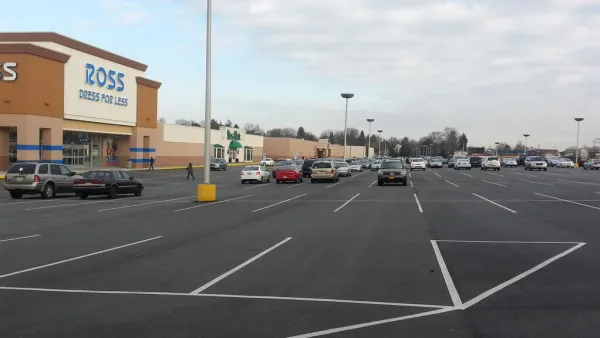
On the Life Cycle of Suburban Malls
Using Greenwood, Indiana as an example, Eric McAfee discusses how the value of individual suburban malls depreciates over time. Shiny new shopping centers compensate for inevitable vacancies in older ones.

Designated Zones to Protect New York Manufacturing
Without designated industrial zones, New York manufacturing companies risk losing their facilities to the residential development market. The de Blasio administration has promised some zoning protections for industrial enclaves.

Five Ways to Measure the Need for City Parks
While standardized metrics for determining the number of and place for city parks cannot replace more fine grain analysis, they can be useful tools. Park planner Clement Lau writes about five park-need metrics, including a couple of the newest.
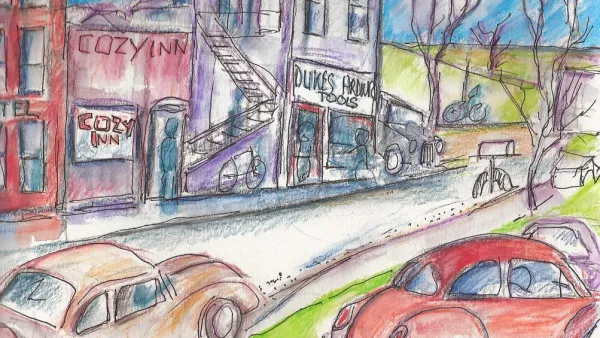
Are Small Towns the Next Arts Districts?
As rising costs expel artists from urban cores, some small towns are positioning themselves as unlikely magnets for creative expression.
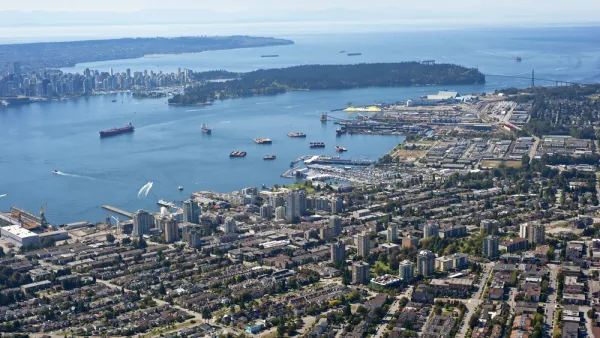
Gentrification and Affordability Worries Arise Over a Proposed Vancouver Tower
A 12-story residential tower proposed for a Vancouver neighborhood is receiving pushback from housing advocates and the local Chinese community.
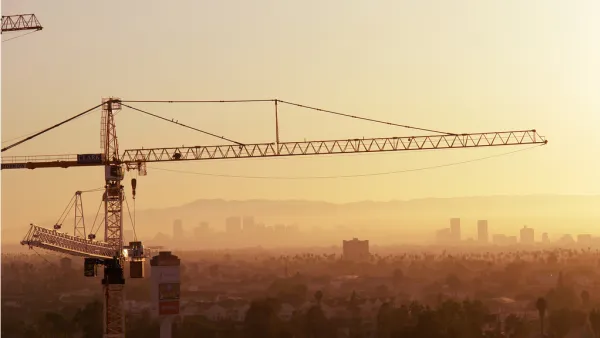
Are Land Use Policies Mostly Hurting the Poor?
In a new paper, researchers find that land use regulations in cities have effectively created a "zoning tax," which primarily impacts the poor and renting class.
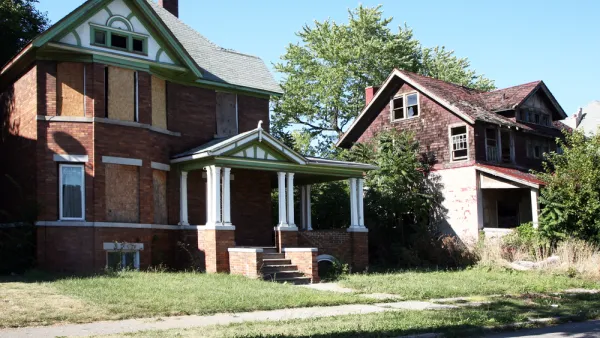
Detroit Receives Funding for Another Demolition Push
A recent influx of money to Detroit for demolitions of abandoned properties brings the city's total to $107 million. That money has established Detroit as the country's proving ground for the idea that demolitions stabilize struggling neighborhoods.
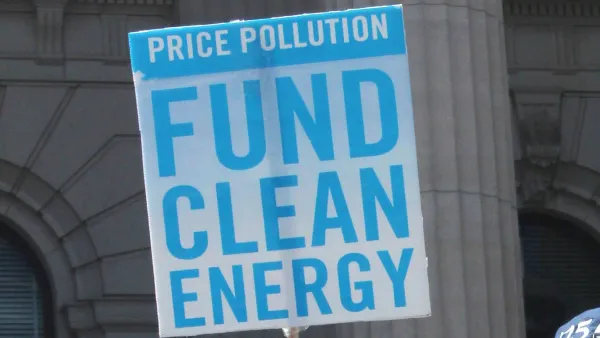
Report: Cutting Urban Emissions Could Save $17 Trillion
Research from the Global Commission on the Economy and Climate recommends an emissions reduction program that might pay off big in the long term. Inter-city exchange and transit planning are key strategies.
More Cities Declaring a State of Emergency Over Homelessness
Seattle is the latest city to declare a state of emergency in response to homelessness in the city. Los Angeles, Portland, and Hawaii took similar steps in recent months.
Pagination
Urban Design for Planners 1: Software Tools
This six-course series explores essential urban design concepts using open source software and equips planners with the tools they need to participate fully in the urban design process.
Planning for Universal Design
Learn the tools for implementing Universal Design in planning regulations.
EMC Planning Group, Inc.
Planetizen
Planetizen
Mpact (formerly Rail~Volution)
Great Falls Development Authority, Inc.
HUDs Office of Policy Development and Research
NYU Wagner Graduate School of Public Service


































